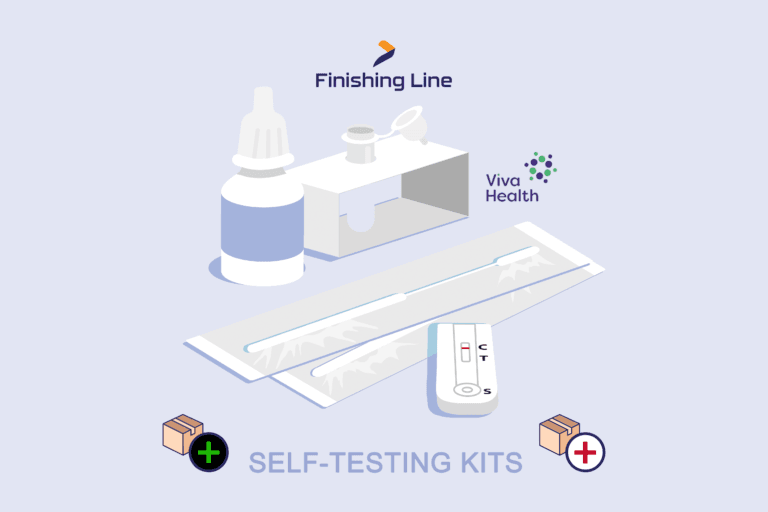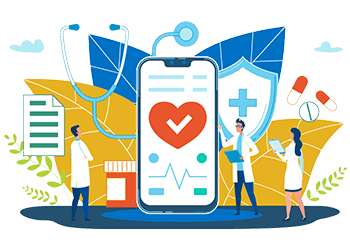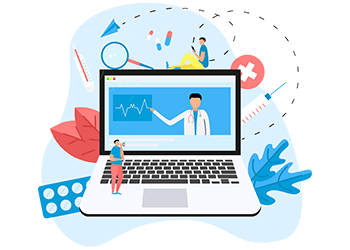Share this thought leadership article
On February 01, 2023 by Josh Arrowsmith
Explore more: Experiences & Industry Insights | Case Studies | Testimonials
Self-testing kits: An industry with limitless potential
Here at Finishing Line, we always have an interesting insight into the latest eCommerce trends. Whichever market or product is doing well is coming and going through our doors in large numbers.
In this case, it is self-testing kits.
Industry
Medical Device & Testing Kits

And one product that is receiving significant consumer interest at present is Health & Wellbeing self-testing kits. There has been a huge increase in the demand for these, which provide a quick turnaround (often within 48 hours) to test for STIs, diabetes, cholesterol, vitamin D levels, liver function, etc.
Since August alone, we’ve seen an increase of over 85% in enquiries relating to the assembly and dispatch of medical testing kits. We’ve also taken on increased work from two existing clients in this sector, one of which is Viva Health Laboratories, whose sales continue to grow exponentially. This encouraged Josh Hill, Managing Director & Group Chief Scientific Officer at Viva Health Laboratories, to give a statement on the current market, and why self-testing kits are becoming increasingly popular. (See right).
This is reflected in the wider market. Self-testing kit sales have a reported global value of $7.49 billion, and this is predicted to reach $11.55 billion by 2030.
So, what’s going on? Discover the key contributing factors causing the explosion in the self-testing market in 2023:
“Self-collection kits form an important part of consumers’ access to healthcare, by removing the friction of having to access GPs and in-person clinics, and through partnered testing at laboratories provides a solution to some of the issues currently faced within healthcare.”
– Josh Hill
Managing Director & Group Chief Scientific Officer


This is the most obvious reason for the eruptive demand of self-testing kits. The pandemic conditioned all of us to regularly receive medical kits and self-test at home. This is made clear in Viva Health Laboratories’ statement on the consumer needs of habitual testing, even post-pandemic. (See right).
As recently as last December, 57% of Britons reported taking regular lateral flow tests. Obviously, that has now reduced, but home testing has become an easy and normal thing for us to do. So, firms that provided Covid tests, such as Randox, DAM Health, and Thriva, have now pivoted and rebranded as health and wellbeing laboratories that provide self-testing kits for other conditions.
Furthermore, one of the knock-on effects of Covid is the huge backlog of work – and consequent delays – now facing the NHS. This means many people have opted to take themselves out of the system and seek private advice. Often, the easiest and cheapest way of doing this is by testing at home, which provides a much quicker result than going through a GP.
“With the COVID-19 pandemic, consumers’ access to healthcare changed overnight. Self-testing through LFTs became habitual and the growth of self-service healthcare exploded. We now see this trend continue as the NHS continues to struggle and consumers’ attitudes shift to preventative healthcare.”
– Josh Hill
Managing Director & Group Chief Scientific Officer

Jump to a different section:

The pandemic has changed the way we work and shop. Over the past two years, many people have adapted their working patterns and lifestyles to become more flexible, with many now far more conditioned to working and shopping from home. Despite all lockdowns being lifted, footfall in shops remains below pre-pandemic levels and people in the UK are still spending more time at home and less time in offices, according to data from Google’s community mobility reports.
There has been some recovery in footfall at stations and workplaces since the first lockdown. However, the latest figures for the week to 11 February 2022 showed that activity at 29% and 21% below pre-pandemic levels. We have become accustomed to using online shopping for everyday products and now want and need stuff to come to us. And medical diagnosis is no different. A self-testing kit through the post is so much easier than making and going to an appointment, then returning for the results.
Jump to a different section:

A recent global health and wellness study by Nielsen found that 48% of global consumers regularly make proactive health and wellness choices, which shows that people want to monitor and protect their health, rather than waiting until illness forces them to act.
This has given gyms, healthy eating, vitamins, supplements, etc., a surge in popularity. And the self-testing trend is another consequence, as people want to know about and deal with health concerns before they become a problem.
Jump to a different section:

Who hasn’t consulted the internet when faced with a health problem? It’s now our first choice for advice. A recent survey found that 47% of British people said they use Google in the first instance, to determine whether they need to see a doctor or not. Obviously, internet health research can be dangerous, as there’s plenty of bad advice out there. It can also lead to worry, as simply googling symptoms can uncover a vast array of related health problems. In fact, nearly 30% of respondents in the survey reported that googling symptoms made them feel more anxious, and 22% saying it had a negative impact on their mental health.
However, it’s clear that as a society we’re now used to doing our own research before getting professional medical help. The next step up from the internet – and the sometimes-dubious advice it offers – is self-testing, which is a reliable and proven way to receive a diagnosis without having to see a doctor.
Jump to a different section:

The Health & Wellbeing self-testing market is enabling consumers to gain greater control over their everyday wellbeing. Test kits conveniently and affordably purchased over the counter or online provide rapid results without the need for traditional referrals and, in many cases, laboratories. The process is discreet, personalised, and fast and we anticipate this market gaining further momentum in 2023.
Jump to a different section:
At Finishing Line, we aim to give you inside knowledge from thought leaders like Viva Health Laboratories, who are making waves in the self-testing kit market in 2023. If you think our multi-channel fulfilment operations could be an ideal fit for your business, check out our communications channels below and send us your enquiry today to see if we could be your next fulfilment partner.
If this thought leadership article has provided you with a comprehensive outlook on the Health & Wellbeing self-testing kit industry, feel free to sign up to our email newsletter below to gain more industry insights that we here at Finishing Line can offer, with 35+ years of industry knowledge. Our services: ecommerce fulfilment, returns management, contract packing, warehouse management.
Please get in touch with us, send a live chat message, or call +44 (0)1268 498 950
Send us your direct enquiry via email:
Was this thought leadership article helpful? Share with your network below

Head of Commercial & Innovation